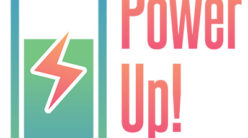Terri always needed a lot of sleep. In fact, her friends made fun of how early she went to bed. But her stressful life made those early bedtimes a necessity.
A mother of two—a 10-year-old and a 16-year-old—the 48-year-old was newly married to a retired military man. Her dysfunctional workplace was usually a stressor, but since a workplace incident had landed her on disability and given her a schedule of just half days at the office, she found it easier to cope with the office’s low morale and personality conflicts.
Then her husband had a terrible accident: Away for the weekend with his pals, he fell over a 20-foot cliff while on a four-wheeler. He was helicoptered to a hospital two counties away, and Terri hastily arranged for her mother to look after the boys while she was at her husband’s bedside.
Weeks went by. Terri’s husband was transferred to a nearby hospital and then finally released—with a number of prescriptions and a full schedule of therapy, doctor’s appointments, and upcoming surgeries.
All of a sudden, Terri’s early bedtime didn’t cut it anymore. Because her husband’s injuries prevented him from driving, she was now the only chauffeur who could get the boys to school, sporting events, and their other activities. She also had to manage her husband’s schedule of pre- and post-op checkups and therapy, all the while making it to work on time and keeping up with her own appointments. Her husband’s restless sleep made it tough for her to get her usual nine hours. And now her friends started to hear a constant refrain: “I’m so tired.”
It may be a phrase that you’ve found yourself saying, or that you’ve heard from your own friends or family. That’s because the condition is far from unusual—and there are various causes of chronic tiredness. Here are a few of the most common reasons you may feel tired all the time:
- Nutrient deficiency
A deficiency in certain vitamins or minerals could be behind your tiredness. An iron deficiency, for instance, can leave you feeling sluggish and weak, because less oxygen is traveling to your muscles and cells. Low levels of vitamin D or B12 can also make you feel tired and weak.
What to do: See your health-care provider for a thorough checkup, explaining that you’re looking for the cause of your chronic tiredness.
2. An overly dramatic approach to life
If you’re a mountain-out-of-a-molehill person, that could be the reason for your tiredness. An exaggerated emotional response to events can squander your energy unnecessarily. Similarly, when you experience an emotional blow, it can drain your energy and impact your sleep patterns.
What to do: Observe the way you react to incidents that occur throughout the day. If negative thoughts pop up automatically, or you find yourself catastrophizing, pause and take a deep breath. Consider how unlikely it is that the worst-case scenario will really happen. Take a break from the situation by going for a walk or doing breathing exercises.
3. Lack of exercise
Trying to squeeze in a workout at the beginning or end of a packed day may feel like it’s going to rob you of sleep instead of help you sleep. But a consistent exercise schedule will not only strengthen your body, it will strengthen your sleep schedule. A University of Georgia study found that sedentary adults who undertook a light exercise program of 20 minutes a day, three days a week, reported feeling greater energy and less fatigue after six weeks. Also, a twilight walk outside “helps program the brain for sleep,” says Jeanne Melvin, an occupational therapist who specializes in sleep medicine.
What to do: Take a good look at your schedule to determine when you can fit in at least three workouts a week. Then add those “appointments” to your calendar—and keep them!
4. Allergies
If you’ve ever had a cold, you know that your symptoms can make it tough to get a good night’s sleep. If you have seasonal allergies, that challenge can extend over months. Common symptoms, such as snoring and restlessness, can be related to allergies—and many people don’t realize that pollen or other allergens are triggering these sleep disturbances.
What to do: Could you have allergies? A trip to your health-care provider can tell you for sure.
5, Alcohol
Alcohol is a double-edged sword when it comes to tiredness. A drink or two can make you feel relaxed and sleepy, and can even help you to fall asleep easier. But as your body metabolizes the alcohol, it can cause fragmented sleep—and result in you feeling tired the next day.
What to do: Skip the alcoholic beverage, and try a sleep-enhancing nonalcoholic drink at night instead. Chamomile tea is a classic sleep aid (bonus: it also helps sooth an upset stomach). Coconut water is also a sleep enhancer. While people often think of it as a rehydrating, energizing drink, it’s also a good bedtime beverage, because it is high in magnesium and can promote relaxation. (And, who knows, it might even help you dream of a tropical island!)
6. The constant glow of a screen
You check your phone first thing in the morning, head to the office to sit in front of a computer, lounge in front of your HDTV in the evening, and then read a few “pages” on your Kindle before you go to sleep. “That constant use of digital screens is the biggest cause of insomnia and poor sleep that I’m seeing,” says Melvin.
What to do: The glow of the screen can suppress melatonin, which helps regulate the sleep-wake cycle, so try to avoid technology for at least an hour before bed.
7. Caffeine
A lot of coffee drinkers think their favorite morning beverage is fighting fatigue, when really it is contributing to it. “In my patients, one of the big issues causing fatigue in the afternoon—around 3:00—is coffee in the morning,” says Melvin. “Coffee stimulates your adrenal glands. You get an adrenal high, and then you get an adrenal crash.” Coffee not only wrecks daytime energy, but it also disturbs nighttime relaxation.
What to do: For steady energy levels all day, try kicking the coffee habit.
8. Depression
Depression is not merely “feeling down.” It is a major illness that can impact you emotionally and physically: it lowers your energy levels, makes it tough to maintain a healthy sleep schedule, and robs your brain of serotonin, a chemical that helps regulate your internal body clock.
What to do: If you suspect you have depression, talk to your doctor.
9. Eating habits
What you eat can drain—or boost—your energy levels. If you’re a junk food junkie, you’re probably experiencing a cycle of blood sugar spikes and sugar drops throughout the course of the day, leading to a sense of fatigue. The healthier your food is, the healthier your energy level will be. So start the day with a healthy breakfast and skip the sugary, refined foods throughout the day.
What to do: Plan ahead so you can be sure of healthful meals at regular times.
10. Chronic stress
Stress can cause insomnia, and it’s not hard to see why. When you’re anxious about something, it’s tough to fall asleep and stay asleep. Chronic stress can lead to adrenal fatigue, a condition which impacts your ability to secrete appropriate amounts of cortisol. That can lead to decreased energy during the day and difficulty achieving restful sleep at night.
What to do: Consistently practice good stress-reducing habits, such as breathing exercises, going for walks, praying, and ending the day with positive, inspirational reading. Also evaluate if there are things you can do to eliminate stress or manage it better.
11. Non-restorative sleep
Some people just don’t go to bed early enough to get a full night’s sleep. It’s no surprise that they wake up tired. But what about the people who are in bed for eight hours or more, but still wake up exhausted? This is a person suffering from non-restorative sleep—“the person who goes to bed, falls asleep easily, sleeps through the night, and wakes up tired,” as Melvin describes it.
Three-quarters of the sleep cycle is spent in non-REM (rapid eye movement) stages of sleep. Stages 3 and 4 of non-REM sleep, the final two stages, are the most restorative. It is during these stages that energy is replenished. Someone who suffers from non-restorative sleep spends most of their sleep cycle in stage 2, never getting to the high-quality rest.
Other sleep-disrupting conditions include insomnia and sleep apnea. People with insomnia may be in bed all night, but they sleep three or four hours and then cannot return to sleep. With sleep apnea, a person is temporarily unable to breathe while asleep (often due to the collapse of tissue at the back of the throat). The body becomes oxygen-deprived, and the individual may be awakened as a result. This can happen several times a night, causing the person to wake up still feeling tired.
What to do: Schedule a sleep study at a sleep center that can monitor you through the night and diagnose your sleep challenge.






